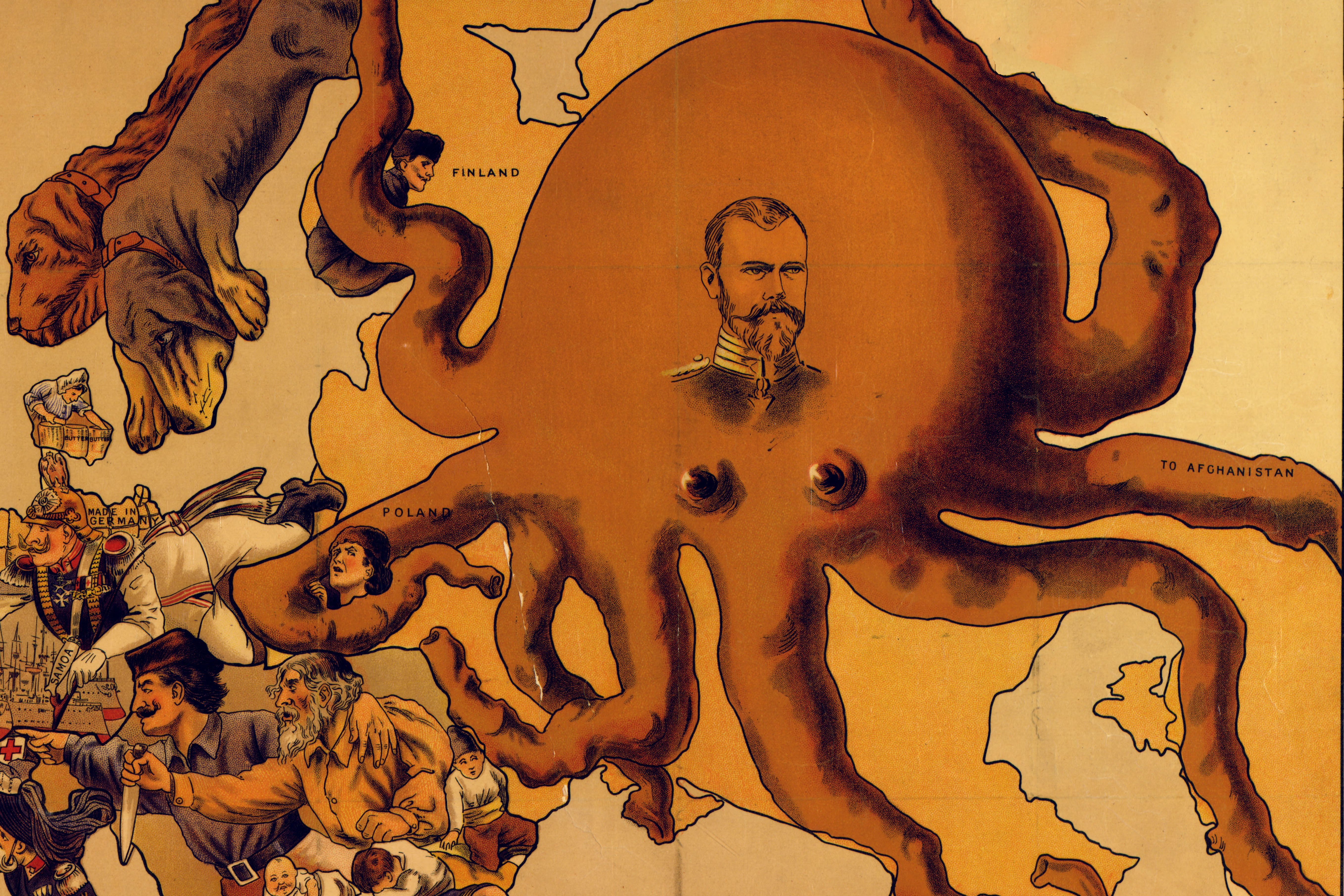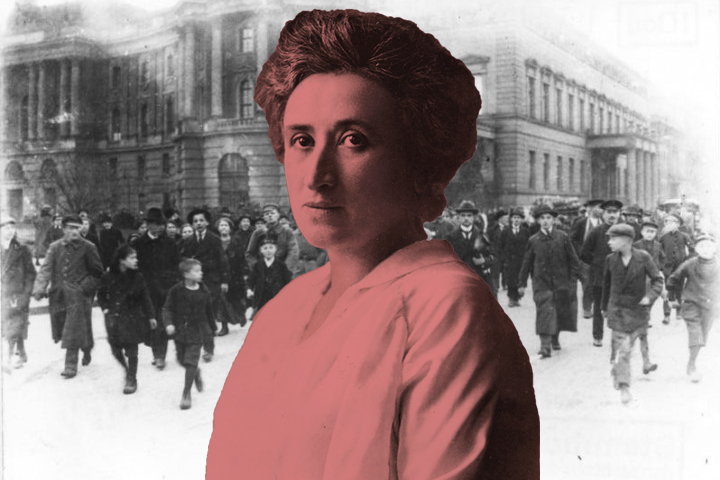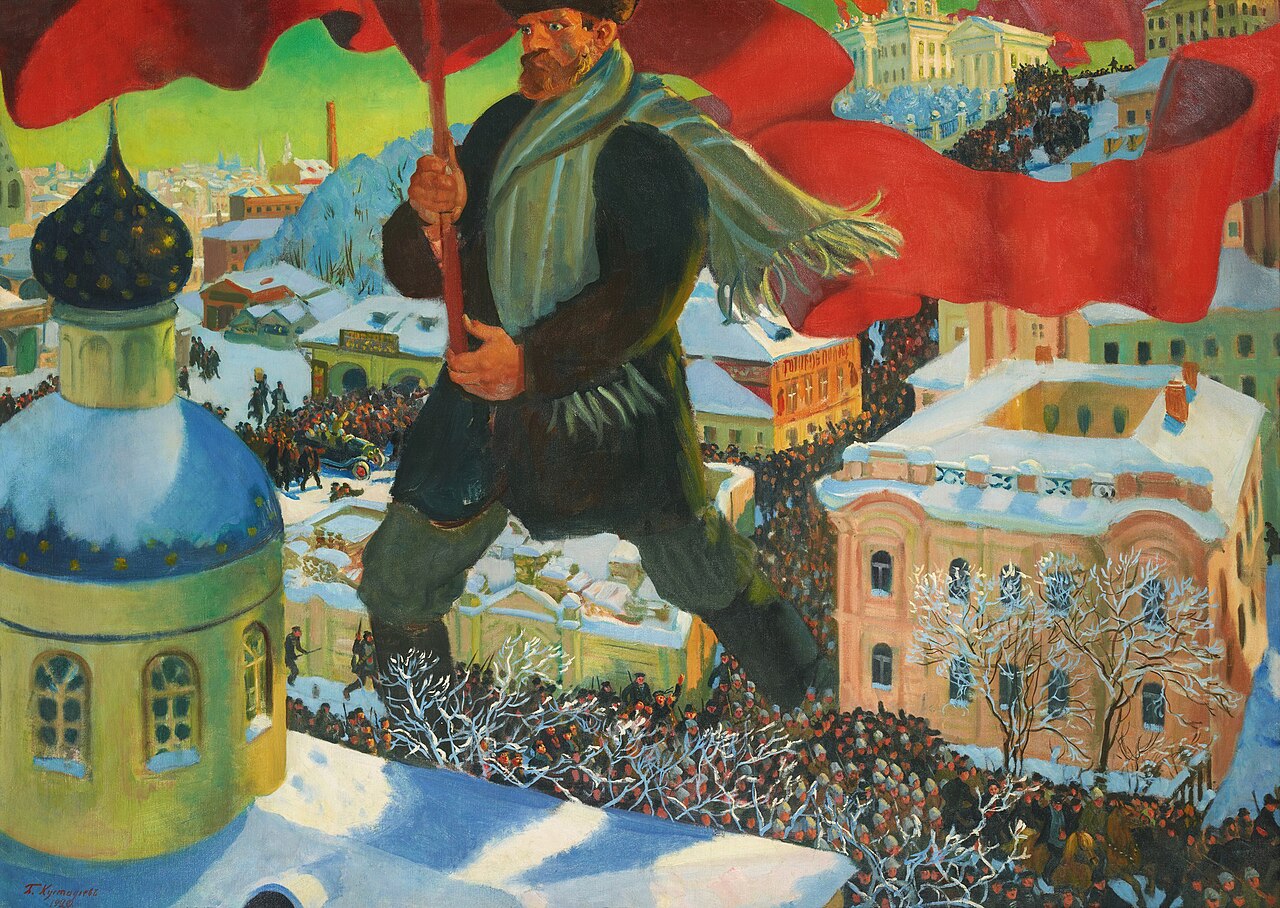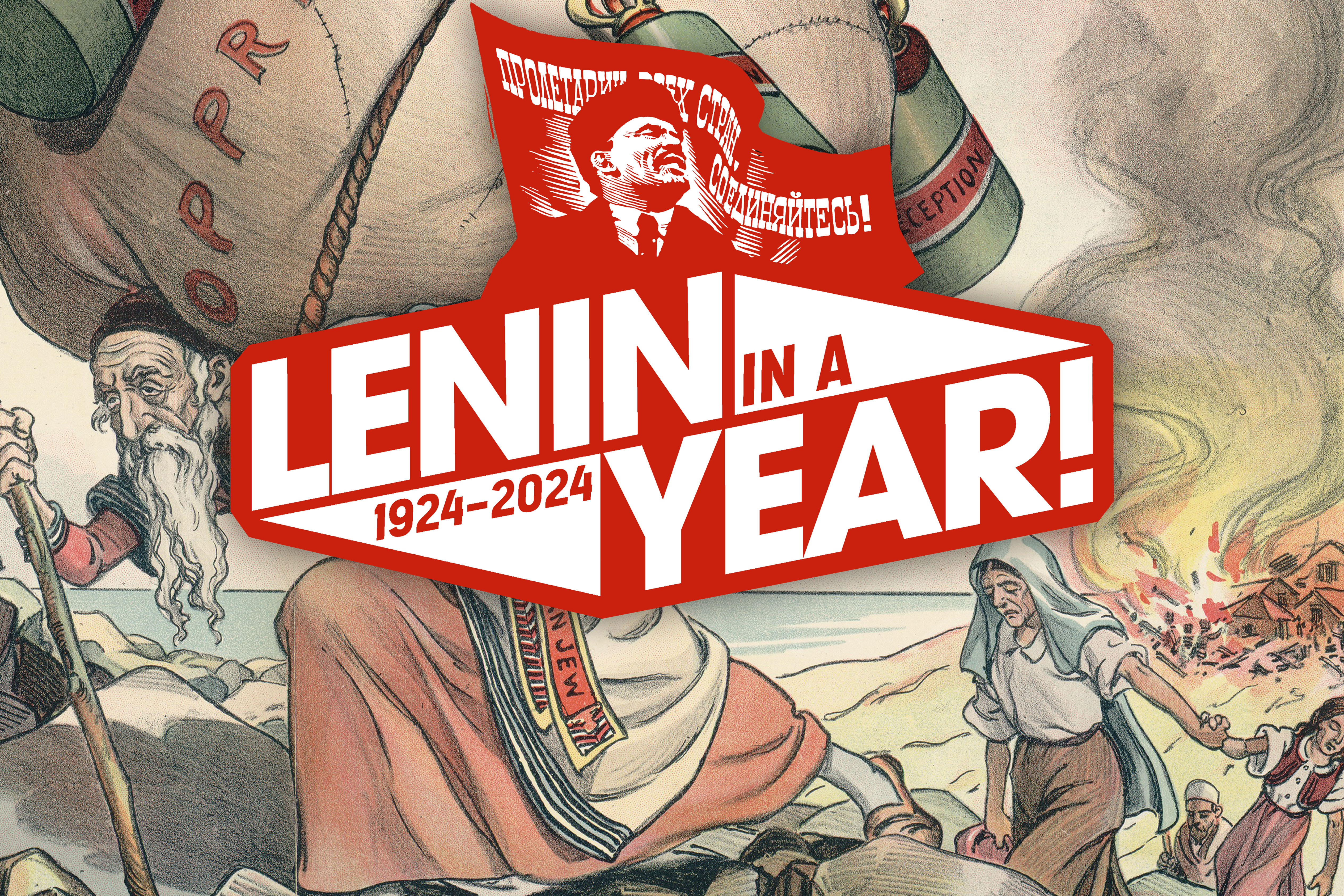Lenin’s position on the national question was a key element in the Bolsheviks’ success in the Russian Revolution. His article The Right of Nations to Self Determination, published in April-June 1914 as a polemic against Rosa Luxemburg and others, is one of his most outstanding works on the subject.
[From 10-15 June, the International Marxist Tendency will present the World School of Communism 2024, at which we will launch a new, Revolutionary Communist International. The week will include over 20 talks covering all the central ideas that communists need to fight for revolution today, including a talk on the national question. Register now!]
The Russian Empire was known as a ‘prison house of nationalities’, in which the ‘Great Russian’ Tsarist regime oppressed over 130 different nationalities and ethnic groups. This was especially the case in the border areas, where entire nations such as the Ukrainians, Georgians, Letts, Finns, and many others, were denied basic democratic rights.
The ‘national question’ – i.e. the struggle of nations or peoples to determine their own affairs, free from oppression – was therefore a key question in the Russian revolutionary movement.
The right to self determination
 The Russian Empire was known as a ‘prison house of nationalities’ / Image: public domain
The Russian Empire was known as a ‘prison house of nationalities’ / Image: public domain
The Russian Social Democratic Labour Party (RSDLP, from which the Bolsheviks emerged as a faction), adopted its famous ‘Clause Nine’ on the national question in its programme in 1903. This granted the “right of self-determination for all nations included within the bounds of the state”.
This position was merely implementing a resolution on the national question agreed by a congress of the Second International in 1896. Despite this, however, this clause was the subject of intense debate on numerous occasions during the history of the Bolsheviks.
Perhaps most notable of these disputes was with the position taken by Rosa Luxemburg. In a lengthy article, The National Question and Autonomy published in 1908-09, Luxemburg argued that the demand for the self-determination of nations is utopian under capitalism, as smaller nations will inevitably remain dominated by imperialism. Whilst under socialism, she thought there will be no need for this right, as the basis for national oppression will be overcome.
A few years later, Russia was gripped by a mass movement of the working class, that by 1914 was reaching pre-revolutionary proportions. At the same time, the Bolsheviks’ position on the national question was under attack by various opportunists within the movement.
Understanding the importance of this question for the success of the revolution, Lenin took the opportunity to combat the various confused ideas on the national question, by restating the Marxist position in a series of articles. One of these, The Right of Nations to Self Determination, is Lenin’s answer to Luxemburg, which were being repeated by various shades of opportunists.
A concrete question
Lenin was sympathetic to the fact that Rosa Luxemburg, as a member of the Polish Social Democrats (i.e. Marxists), was engaged in a struggle against the so-called ‘Polish Socialist Party’, which in fact was led by bourgeois nationalists.
Luxemburg correctly campaigned against the Polish nationalists’ demands for independence, who at the end of the day were only interested in this in order to obtain privileges for themselves while dividing Polish and Russian workers.
Luxemburg feared, however, that by advocating for the right of nations to self-determination, the Russian Marxists would fan the flames of nationalism amongst the workers of the oppressed nationalities, and drive them into the arms of the bourgeois nationalists.
Luxemburg therefore argued against the Bolsheviks including the right of nations to self-determination in their programme. In doing so, she attempted to back up her argument by criticising this right as being ‘abstract’. If it wasn’t included in the programme of the German Marxists, she argued, then why should it be included elsewhere?
But, as Lenin pointed out, it was in fact Luxemburg herself that treated the national question abstractly, i.e. divorced from the concrete conditions in Russia that gave rise to various national movements.
Lenin explained that the struggle for the establishment of nation states was connected historically with bourgeois-democratic revolutions, and the capitalists’ need for national markets.
Whilst this process had been more or less completed in Western Europe by 1871 with the unification of Germany – hence its absence from their programme – it had only really just begun in Eastern Europe and Asia with the 1905 Russian revolution.
There were therefore very powerful factors that gave rise to the bourgeois nationalist movements in the border regions of the Russian Empire, where in many cases capitalism was developing faster than in the ‘Great Russian’ interior.
Alongside this, the legacy of centuries of national oppression was driving many workers and peasants to look for a solution to their problems. The question of imperialist domination down the line was of less concern to them than removing the domination of their existing oppressors.
 Luxemburg treated the national question abstractly / Image: public domain
Luxemburg treated the national question abstractly / Image: public domain
Lenin therefore explained that the national question could not be ignored by the Russian Marxists. By renouncing the right of nations to self-determination, they would effectively leave the field of struggle in the hands of the bourgeois nationalists.
Against this, Rosa Luxemburg argued that the Russian Marxists’ Clause Nine offered no ‘practical’ solutions to the national oppression of workers and peasants. But Lenin responded that while, yes, during the death agony of capitalism, democratic rights are squeezed out, reforms are reversed, and oppressed nations are subjugated ever more brutally in imperialism’s vice, we do not tell workers to sit on their hands and wait for the revolution to solve all their problems as the only ‘practical’ way out.
The revolution is only possible on the basis of precisely the struggle for democratic rights, reforms, and, yes, national liberation, pushing through bourgeois legality all the way to socialist revolution. The ‘practicality’ of any demand is determined through struggle.
Different approaches
In treating the problem concretely, Lenin drew an important distinction between the approach taken towards the national question by workers of oppressed and oppressor nations, which form two sides of a consistently internationalist position.
For those of the oppressed nations, it was vital to guard the working class against the influence of the bourgeois nationalists, who at the end of the day used nationalism to cut across the class struggle, in favour of privileges for themselves:
“It makes no difference to the hired worker whether he is exploited chiefly by the Great-Russian bourgeoisie rather than the non-Russian bourgeoisie, or by the Polish bourgeoisie rather than the Jewish bourgeoisie, etc.
“The hired worker who has come to understand his class interests is equally indifferent to the state privileges of the Great-Russian capitalists and to the promises of the Polish or Ukrainian capitalists to set up an earthly paradise when they obtain state privileges.”
Lenin added that:
“It is not difficult to understand that the recognition by the Marxists of the whole of Russia, and first and foremost by the Great Russians, of the right of nations to secede in no way precludes agitation against secession by Marxists of a particular oppressed nation, just as the recognition of the right to divorce does not preclude agitation against divorce in a particular case.”
Whether workers of the oppressed nation would agitate for secession or not depended on a whole range of factors. Lenin quoted extensively from Marx and Engels and their approach to various national movements to help draw these out. Above all, was the impact such an independence movement would have on the class struggle, and the development of the world revolution.
But for workers of the oppressor nation, Lenin argued that it was crucial to come out in defence of the basic democratic rights of the oppressed, including that of the right to secede. This is primarily a negative demand – against forcible retention of one nation by another. Communists stand for the fullest possible democracy, of which this right forms an indispensable part.
This was necessary in order to overcome centuries of oppression, which left a legacy of mistrust towards the oppressor nation on the part of the oppressed.
Lenin therefore argued that for the Russian Marxists to remove the right of nations to self-determination from their programme – as Luxemburg demanded – would actually play into the hands of the bourgeois nationalists. Not only this, but it would sanctify the continued privileges of the Great Russian ruling class, and fail to educate Russian workers in the spirit of internationalism.
Therefore, far from fanning the flames of nationalism, Lenin’s position on the national question was designed to do precisely the opposite. The Bolsheviks were clear that should they come to power, they would have no interest in maintaining the oppression of the various nationalities. This helped cement the unity of the workers and poor peasants of the various nations, as well as cut the ground from under the feet of the bourgeois nationalists.
Russian Revolution
Indeed, as soon as the Bolsheviks took power in the October Revolution, they immediately reaffirmed their position on the national question, as well as granting land to the peasantry.
 As soon as the Bolsheviks took power in the October Revolution, they immediately reaffirmed their position on the national question / Image: public domain
As soon as the Bolsheviks took power in the October Revolution, they immediately reaffirmed their position on the national question / Image: public domain
Within days they issued the Declaration of the Rights of All Peoples of Russia, which granted all nations the right to self-determination, and abolished any privileges or restrictions on any nationalities.
This right was no mere scrap of paper. In fact, during the early years of the revolution, the Bolsheviks recognised the independence of five new nation states.
Meanwhile, within the umbrella of the new Russian Soviet Federative Socialist Republic, 17 different autonomous national republics were created. The Tsarist practice of treating Russian as a ‘state language’ was abolished, and schools were obliged to offer education in the native language of children.
In other words, the Bolsheviks proved in practice that they were serious about ending the oppression of the various nationalities. In doing so, they drew in enormous support for the revolution.
Far from causing division amongst the working class and poor of different nations, the Bolsheviks’ policy on the national question was an important element in bringing them together. Most importantly, however, was the Bolsheviks’ programme to transform society, made possible by putting power in the hands of the workers and peasants – i.e. the class question.
Today
Lenin’s position on the national question still retains its full force today. With capitalism in crisis worldwide, national questions that seemed previously solved are again rearing their heads.
This is the case for example in Scotland and Catalonia, where many workers and youth are looking towards independence as a means to escape the austerity imposed upon them by governments in London and Madrid respectively.
Elsewhere, many national questions that have never been solved are being intensified by the complete impasse of capitalism. This is the case for example of the Kurds and, of course, the Palestinians.
One of the key lessons from Lenin’s The Right of Nations to Self Determination is that there is no one-size-fits-all blueprint that can be applied to various different national questions.
Whilst it is vital for the working class of an oppressor nation to inscribe the right of nations to self-determination on its banner, the question of whether to support a particular struggle for independence must be treated concretely from the standpoint of what would best serve the interests of the working class and world revolution.
And in the cases where a particular movement for succession is to be supported, the working class must not act as cheerleaders for the bourgeois nationalists, but must take a class-independent position.
As Lenin concluded:
“Complete equality of rights for all nations; the right of nations to self-determination; the unity of the workers of all nations – such is the national programme that Marxism, the experience of the whole world, and the experience of Russia, teaches the workers.”


